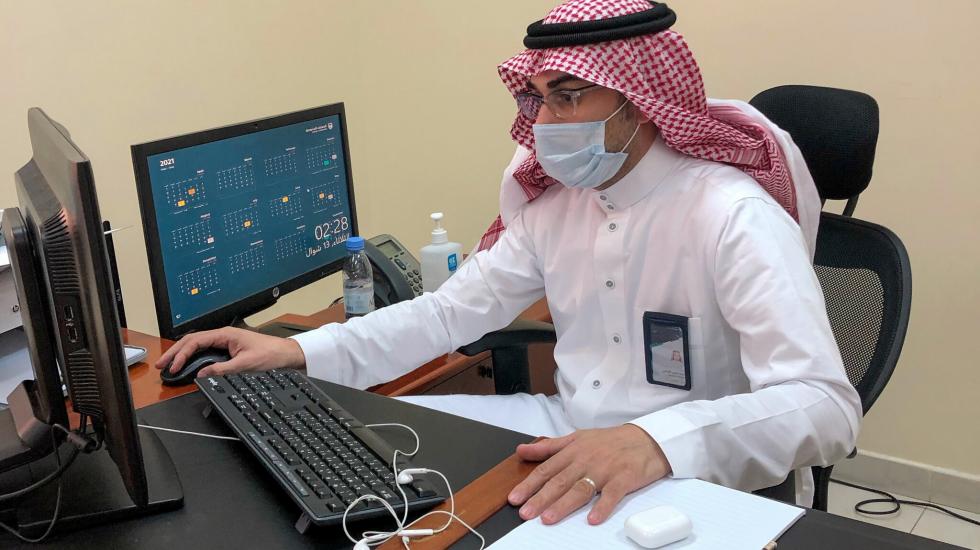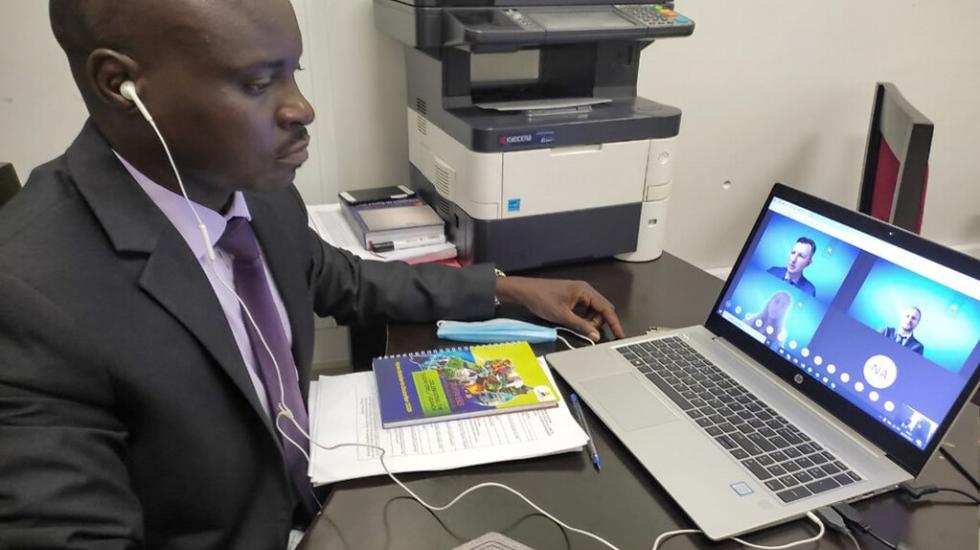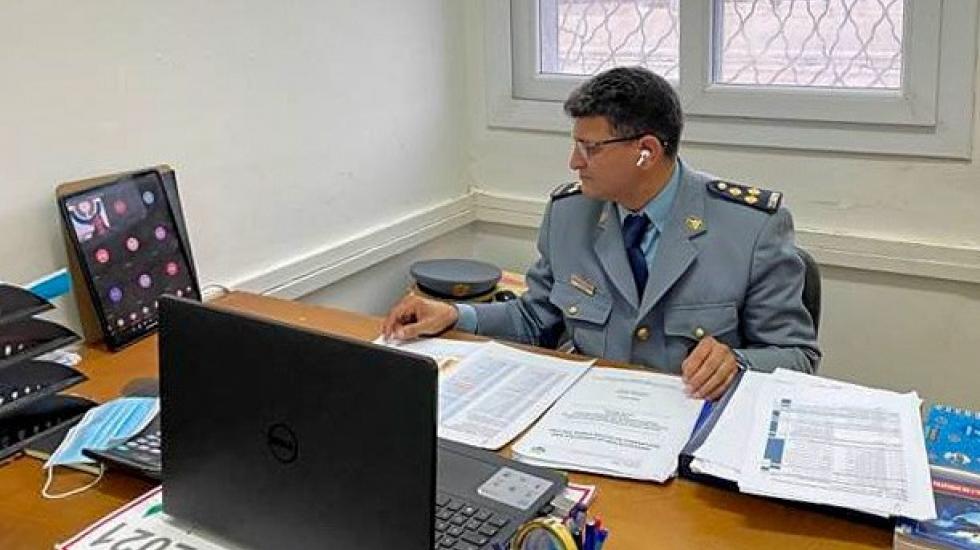
THE HAGUE, Netherlands–27 May 2021–The Organisation for the Prohibition of Chemical Weapons (OPCW) and the World Customs Organization (WCO) jointly organised an online training course on the enforcement of the Chemical Weapons Convention’s (CWC) transfer regime of scheduled chemicals, held from 25 to 27 May.
The Head of OPCW’s Implementation Support Branch, Ms Beatrix Lahoupe, remarked: “New and evolving security threats, particularly those posed by non-state actors, require robust capabilities within customs authorities. The OPCW assists its Member States in enhancing national capacities in this area. This course strengthens customs officers’ trade monitoring skills within the CWC’s national, regional, and global security context.”
A WCO trainer, Ms Vesna Vračar, emphasised the complementarity of OPCW’s and WCO’s mandates. She noted: “The WCO values its strategic partnership with the OPCW. Our collaboration creates important synergies for effectively addressing existing and new security challenges related to cross-border movement of toxic chemicals.”
Over three days of intensive course work, participants gained insight into CWC’s transfer provisions, discussed transfer scenarios with experts from the OPCW and the WCO, identified best practices in exercising effective control over trade in toxic chemicals, and shared experiences in implementing national training programmes in the enforcement of trade controls.
The customs officers also learned about identification tools that facilitate Member States’ monitoring responsibilities under the Convention. They discussed various aspects of cross-border trade control, including licencing, risk management and physical inspection of chemicals, as well as causes for discrepancies in reporting imports and exports of scheduled chemicals.
A participant from Malta, Mr Andre Gauci, highlighted the relevance and importance of the course for making the trade in toxic chemicals more secure and complying with the obligations contained in the Chemical Weapons Convention. He stated: “I learned a lot about the identification of scheduled chemicals and reporting on their transfer. The OPCW’s database of scheduled chemicals and practical exercises were particularly useful in acquiring new knowledge”.
Considering the growing importance of this subject and the increasing interest of Member States in enhancing their capabilities, OPCW will conduct more training for frontline customs officers. These courses will complement OPCW’s well-established training-of-trainers programme for customs training institutions.
The course was attended by 61 representatives from the following 40 Member States from all OPCW regional groups: Algeria, Bahamas, Bangladesh, Belgium, Bolivia, Brazil, Canada, China, Colombia, Cuba, Cyprus, France, Ghana, Grenada, Guatemala, Hungary, India, Italy, Malaysia, Malta, Mauritania, Mauritius, Morocco, the Netherlands, Nigeria, Peru, Philippines, Poland, Saint Kitts and Nevis, Samoa, Saudi Arabia, Serbia, South Africa, Spain, State of Palestine, Sudan, Suriname, Turkey, Uganda, and Zambia.



Background
As the implementing body for the Chemical Weapons Convention, the OPCW, with its 193 Member States, oversees the global endeavour to permanently eliminate chemical weapons. Since the Convention’s entry into force in 1997, it is the most successful disarmament treaty eliminating an entire class of weapons of mass destruction.
Over 98% of all declared chemical weapon stockpiles have been destroyed under OPCW verification. For its extensive efforts in eliminating chemical weapons, the OPCW received the 2013 Nobel Peace Prize.
